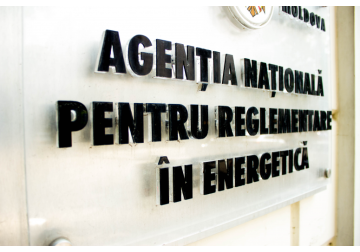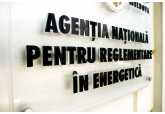
NAER explained the use of average Platts quotes over the past 14 days to set maximum retail prices for petroleum products.
In particular, the National Agency for Energy Regulation recalled that, according to the NAER Calculation Methodology, the determination of the maximum retail prices for the main oil products of the standard type is carried out on the basis of the average value of average Platts quotations for the previous 14 days, correlated with the leu/dollar exchange rate, to which added: excise tax, value added tax and specific trade margin (established by NAER every 6 months). As noted in the message of the energy regulator, therefore, the method of calculating the maximum price by the agency is the same as in the case of prices set by companies in international transactions, which allows them to amortize the effect of a price increase or decrease made on a particular day through an average value. As a result, any decrease or increase in the price on international markets is felt at the filling stations in Moldova only after a few days. NAER clarifies that in March there were two successive waves of rising oil prices on international markets. This is a direct consequence of the tragic events in Ukraine and the sanctions imposed against Russia. The reduction in the supply of diesel fuel in relation to demand was felt most of all, with European states being the most vulnerable. Imports from Russia account for about 15% of diesel consumption in Europe, and European refineries also import oil from Russia to produce local fuel for the European market. If earlier the price of diesel fuel on international markets was $30-120 per ton cheaper, then in March it began to exceed the price of gasoline, and on some days it exceeded it by $100-170 per ton. Thus, the first wave of growth in international prices began on February 28 and continued until March 8th. According to NAER, consumers in Moldova felt this impact until March 15 and 16, when prices reached their maximum values. In this case, it is important to note that the 14-day average Platts quotes used to calculate NAER prices had a much smoother increase than the daily quotes, which softened the shock of the immediate increase over time. Thus, if the daily quotes increased in the first wave by $278 per ton for gasoline and by $529 per ton for diesel fuel, then the average value for 14 days used by NAER in its peak values was lower than the maximum quotations by $132.35 per ton of gasoline and $275 per ton of diesel fuel. From March 9 to March 16, a period of lower prices on the stock exchange followed, and, accordingly, from March 16, there was a decrease in retail prices at filling stations in Moldova. However, as the energy regulator emphasizes, unfortunately, on March 17, the second wave of growth began on international markets, which began to be felt in Moldova on March 24-25. Thus, from March 16 to March 24-25, the second wave of increases raised prices by $156.25 per ton for gasoline and by $320 per ton for diesel fuel, and in the coming days this will determine the trend of the average indicator calculated by NAER. The National Agency for Energy Regulation reiterated the effectiveness and correctness of the mechanism for setting prices for petroleum products, applied from September 1, 2021. As noted, this mechanism aims to provide consumers with fair, transparent and easily verifiable prices, while changes in the international market are accurately reflected in the domestic market, both in the increase and decrease in Platts quotes. // 29.03.2022 — InfoMarket







